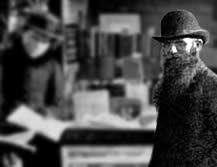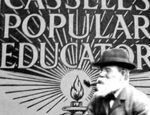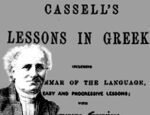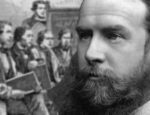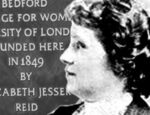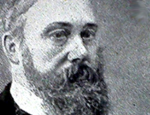Description
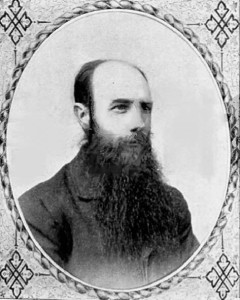 Wave at the book van as it rolls slowly by. It’s driven by ‘the converted shepherd boy’, James Rennie, who sold cheap, ‘improving’ literature to the rural poor. Born in 1851 in a town near Melbourne, Rennie—son of a Perthshire ploughman seeking gold in Australia—joined his father in his triumphant return to Britain with enough money to set up as a maltster. In disapproval of what he considered his father’s sinful occupation, the teetotal Rennie left home in around 1870 to become a travelling salesman of books, also known as a ‘colporteur’, for The Scottish Tract and Book Society.
Wave at the book van as it rolls slowly by. It’s driven by ‘the converted shepherd boy’, James Rennie, who sold cheap, ‘improving’ literature to the rural poor. Born in 1851 in a town near Melbourne, Rennie—son of a Perthshire ploughman seeking gold in Australia—joined his father in his triumphant return to Britain with enough money to set up as a maltster. In disapproval of what he considered his father’s sinful occupation, the teetotal Rennie left home in around 1870 to become a travelling salesman of books, also known as a ‘colporteur’, for The Scottish Tract and Book Society.
He mainly sold Bibles and religious tracts, which he called ‘pure literature’, but among the armoury of his cultural crusade of rural England, stood proudly Cassell’s Popular Educator, a kind of self-help publication, which promoted the acquisition of knowledge among the working classes. Prominent in the autodidact’s curriculum was the study of the languages Latin and ancient Greek.
Colportage was not big business. Rennie, however, was an important figure in the formation of a substantial army of scarcely-paid men who dedicated their lives to spreading the word of God to people living in hard-to-reach rural Britain. The colporteurs put affordable books into the hands of those who would otherwise have no access to literature.
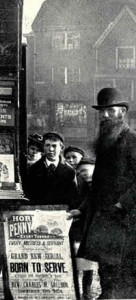 When questioned about the rural poor’s “squandering” their meagre income on books, Rennie would say: “books are better than beer, and the reading of these books has, with God’s blessing, made many a sober father and son, mother and daughter, while beer has brought many to shame and ruin. Books instead of beer! And we shall have more peace in our homes, and more people to our churches and chapels.”
When questioned about the rural poor’s “squandering” their meagre income on books, Rennie would say: “books are better than beer, and the reading of these books has, with God’s blessing, made many a sober father and son, mother and daughter, while beer has brought many to shame and ruin. Books instead of beer! And we shall have more peace in our homes, and more people to our churches and chapels.”
In his autobiography Rennie includes as epigraph the following curiously free “translation” from the Greek historian and biographer Plutarch’s ‘How to listen to the poets’ (14-):
“We ought to regard books as we do sweetmeats, not wholly to aim at the pleasantest, but chiefly to respect the wholesomest; not forbidding either, but approving the latter most.”
This attitude—however foreign it may have been to Plutarch, whose own words in fact pass no comment on books, wholesome or otherwise—granted space on Rennie’s van for books that were not “pure literature”. The entertainment-starved villagers were no doubt very grateful to Plutarch and Rennie for this loophole, which enabled them to pick up such publications as Boy’s Own Paper, Leisure Hour, Sunday at Home and Cassell’s Popular Educator.
It is now a wonder that such a man and so laborious a vocation ever existed. Colportage provided a much-needed channel for learning (and literary recreation) from the burgeoning cheap-book trade to the isolated rural poor. James Rennie and his pony-powered book van brought illumination to some of the darkest corners of rural England under the banner of The Scottish Tract and Book Society.
n.b. around 1880

